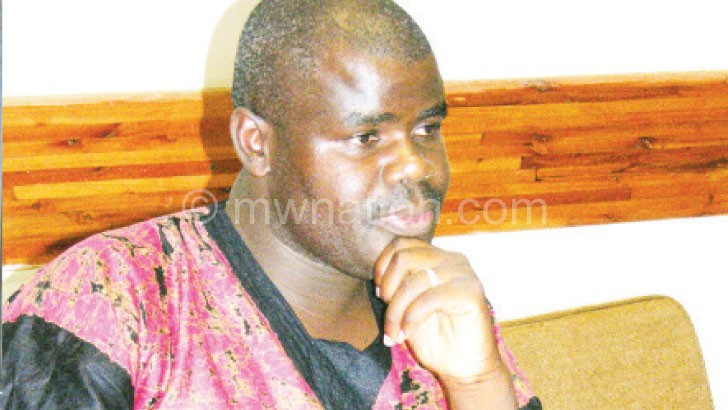‘Govt should learn to live within its means’
The country’s economy has been sailing through rough waters, much more with the pulling out of direct budget support by development partners. In this interview, REX CHIKOKO speaks to University of Malawi’s Chancellor College political analyst BONIFACE DULANI on development aid and economy in the country.
Government insists that it is implementing a zero-aid budget, but development partners (DPs) insist that such an assertion is not entirely true because the donors still support the sectors. What would you say to that?

There are elements of truth to both sides of the argument. We know donors have been channelling their resources to various communities either directly or through non-governmental organisations (NGOs). The most visible has been the donations of medicines to various hospitals. There have also been a number of donor-funded infrastructure developments that are being implemented through local assemblies. However, the largest portion of financial aid that our government controls is that which comes through budget support. Without this support, government might claim the budget-which is the only financial package directly under their control-is a ‘zero-aid budget because it is fully funded by government. Of course, it is in government’s interest to ignore the funds that are being channelled through other means to project an image of an administration that is doing its best under difficult circumstances in the hope that doing so gains it public sympathy.
Do you think Malawi is indeed benefiting from the aid that comes through off budget mechanisms?
The proof of the pudding, it is said, is in the eating. Government programmes, as well as any development assistance from outside, whether channelled through government or directly, are both supposed to go towards uplifting the lives of ordinary Malawians. If you ask an average Malawian to indicate whether their lives have been transformed for the better either through government or donor programmes, the most likely answer I think would be no. In the case of aid, we often hear of billions of kwachas being brought into the country, but the effect of these monies in transforming the lives of ordinary Malawians appears to be very minimal at best. The proof is that we still remain a very poor country even after so many years of aid. This brings to mind one of the most potent criticisms of aid: that oftentimes, a large proportion of what is promised ends up
going back to the West with very little spent on the poor Malawian.
What would you consider to be the major challenges of off-budget mechanisms?
When donors channel assistance outside of the government machinery, this potentially creates challenges of coordination that might in turn lead to duplication of effort. The current arrangement further makes long-term planning, especially on the part of government, very difficult. Off-budget mechanisms can also reduce the levels of scrutiny and accountability since Malawians only have the ability to question and scrutinise the programmes of their government.
With off-budget mechanisms, government says it is difficult to capture the figures into national budget and even incorporate into the economic agenda of the country, what do you say?
While I agree with this assessment, government has a responsibility to deliver development and other key services to the people of Malawi. It cannot shirk this responsibility simply because donors have chosen to channel their money through other means. Indeed, even if donors decide to leave Malawi completely, that would not absolve government of its responsibility of serving the people of Malawi.
How would government capture such resources to ensure that they form part of the national accounts?
This is perhaps a question left to economists and other better qualified people than myself. What is important to point out though is that we are increasingly moving away from the era of budget support. As a country, we need to accept this reality and start working towards self-financing our budget. We could start by learning to live within our means.
How do you think government would ensure that even though resources are coming to Malawi through off-budget mechanisms, projects and programmes funded by such money are aligned to the national budget?
I think it is nigh impossible to compel donors to align their assistance with the national budget. The first reason is that budgets are often one-year spending plans. While donor aid often has long-term goals. It would be more realistic to align donor assistance to our development blueprints such as the MGDS II.
To date, since 2013, government says it only lost 10 percent in General Budget Support. Could that have an impact on national budgets and the economy in general?
We are a country that is ranked among the poorest in the world. Every little bit of help we can get from our development partners can go a long way in changing the lives of the people of this country for the better. It thus follows that any amount of assistance that has been lost, no matter how little, has to be regretted because it could have helped to pay for a myriad of services that our country is desperately lacking. Indeed, 10 percent is not a small amount that should be easily dismissed.





